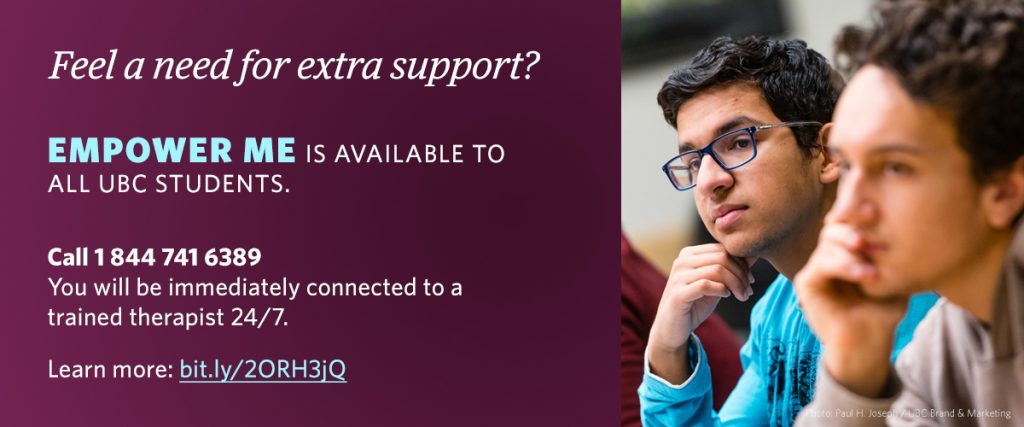
Tips for Holding Productive Office Hours
Office hours are an opportunity for you to get to know students and gain insight into their questions, concerns, writerly development, and wellbeing. Meeting one-on-one is incredibly rewarding; at times, it can be emotionally taxing. Here’s how to run a productive office hour without the drain on your creative resources.
Know why you’re there.
Your time spent in office hours can greatly improve a student’s connection to the course, build intrinsic motivation, and even strengthen a sense of community. Check in with the instructor regularly to ask them what they envision for office hours, how to reach out to students who might need extra support, and to make sure you’re well informed of upcoming assignments and course materials in case you have to field questions about content and assignments.
Create clear parameters around meetings.
There are any number of reasons why students want to talk with a TA during office hours. Sometimes the reasons are clear, and other times it’s hard to discern what the student might require. If you’re meeting by appointment, have students generate two – three questions in advance. Review any assignments or course materials that might be relevant to your discussion.
Once you have a sense of why they’re there, offer a quick overview of what they can expect from you. Work together to set clear goals and be firm about expectations.
If a student has a question about clarification on feedback, ask them to paraphrase their understanding of the comments they’ve received. Ask them to show specific examples in the work where they have achieved the standards expected of them.
Progress, not points.
Begin your one-on-one session by reminding the student that you’re able to clarify any comments or discuss the writing but not negotiate grades.
Office hours is an opportunity to teach! Focus on problem-solving strategies, not answers to a given problem. Make students do the work, including: looking something up in Canvas; troubleshooting; re-reading the rubric and self-assessing their own work; and even, in some cases, pairing students to help one another.
One of the most rewarding parts of this job is observing a student’s progress across the term. Reflecting specific instances of writerly development in the work is one way to get them excited about their learning. When students inevitably turn up to challenge grades, shift the focus back to the feedback, try to interpret it together, and give them three particular technical qualities to concentrate on for the next assignment.
Share resources.
One-on-one sessions are a great chance to learn a little bit about your learners outside of the course. Ask them questions about TV shows they’re watching, what they do when they’re not doing school work, what their creative process is, how they get to school – any neutral questions — in order to create a connection.
In addition, if you’ve come across any readings, podcasts, TV shows, movies, etc. you think they might like based on what they’ve shared with you, by all means make suggestions. Office hours can be so devoted to assessment, confusion, and frustration that sometimes a little light-hearted inspiration can be exactly what’s needed.
Take your time.
If a student shares a piece of writing with you and you’re finding it difficult to articulate anything useful in the moment, ask if it’s okay to take a couple of days to reflect on the work. Make an appointment to see one another in a week, when you can both return with fresh eyes.
If you don’t know the answer, it’s totally fine to say, “I don’t know.” You can either have them do some research, if applicable, or you can contact the instructor and get back to them at a later date.
Difficult Conversations
Students will express feelings of vulnerability, frustration, or in some cases, enough trust to share personal obstacles and challenges. For some, it’s a way to process or release stress. This requires hearty doses of compassion and understanding on your part, and it also requires a firm sense of boundaries and an understanding of what’s expected of you in those moments.
It is not your job to counsel or provide emotional support to students. If someone discloses personal information, or becomes upset, you can immediately put them in touch with resources on campus. Sit with them while they call Empower Me, or make an appointment with Counselling Services. Ask them if they have family support; have the student make a plan to check in with someone they trust. After the meeting, submit an Early Alert to ensure there is a record of this conversation (you can select low, medium or high level of concern) and be in touch with your instructor right away.
In the cases where one-on-one meetings have taken an emotional toll, please reach out to any one of us who are here to support you: your instructor, Amy Higgins, Nancy Lee, or me. We can help you process these encounters and create strategies for future student interactions.
Resources
There are resources available to you! If you would like to have materials on hand for students in crises, please be in touch with Amy or myself. Here are the links to the most pertinent information:
Crisis Support: https://students.ubc.ca/support
Early Alert: https://facultystaff.students.ubc.ca/systems-tools/early-alert
Counselling Services: https://students.ubc.ca/health/counselling-services
Empower Me

Last year, Roquela Fernandez created THIS RESOURCE for office hour strategies.
Health & Wellbeing Resources for Grad Students: https://www.grad.ubc.ca/current-students/health-wellbeing-safety
TA Teaching Support: https://ctlt.ubc.ca/resources/teaching/teaching-assistants/
(Art by Amy Silliman!)
